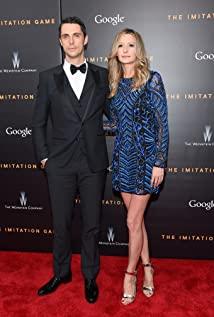The incident about Turing's participation in a secret program of the British government during World War II, during which he designed Enigma, a human-powered intelligence to crack the German password system, which helped World War II end two years early, heralding the advent of a great computer age.
"Father of Computer Science". Although I have only taken a computer-related course for one year, I also remember that the database teacher talked about this person and his "Turing machine" and "Turing problem". In the movie, when Turing asked the police to ask him questions and explained the "Turing problem" intuitively, I was excited and inexplicably warm: I know this, the teacher said it! (Slime...
The Turing personality in it is a bit weird, and it has similarities with Curly Fu, like a very high self-esteem and a terrible interpersonal relationship. Do geniuses have a terrible personality.
But the individual Destiny is a bit tragic.
Great. Moved. Alas. There is a lot to think about.
Smart is a new sexy. Add a specific WWII setting. But none of that matters. Unlike other TV show geniuses yes, Turing is real, but none of those labels matter. I don't know if the writers were purposely using these As a selling point, but when watching a movie, it doesn't matter, the most interesting thing in the movie is Turing.
See how he reacts to people, events, scrutinizes what he thinks, and his relationship with women (forgot the name) The relationship with teammates, the interaction and development of this incompetent person with others is actually like a slow-motion close-up of the process of building emotional connections between us ordinary people and others. Enlarge, this part is very interesting.
And his relationship with women and teammates is very touching.
I watched the part of the teenage friend very calmly. There has been such a paragraph similar to first love, but this one I am more interested in is the reaction of little Turing, behaviorist psychologists will love him to death.
In the end, Turing, who was hit with hormones, became emotionally exposed and vulnerable, crying in front of the machine and saying "I can't be alone, don't leave me alone" is too pathetic.
But his love for the machine is so expressly reinforced at the end ("I choose chemical castration, because I can't go to jail, my machine will be taken away, he is getting smarter"), I think it is too sensational Now, at this point in the movie, Turing no longer needs to add a morbid feeling to deepen people's "fascination" with it. This emphasis is a failure. However, how to deal with it would be better, did not expect.
View more about The Imitation Game reviews











